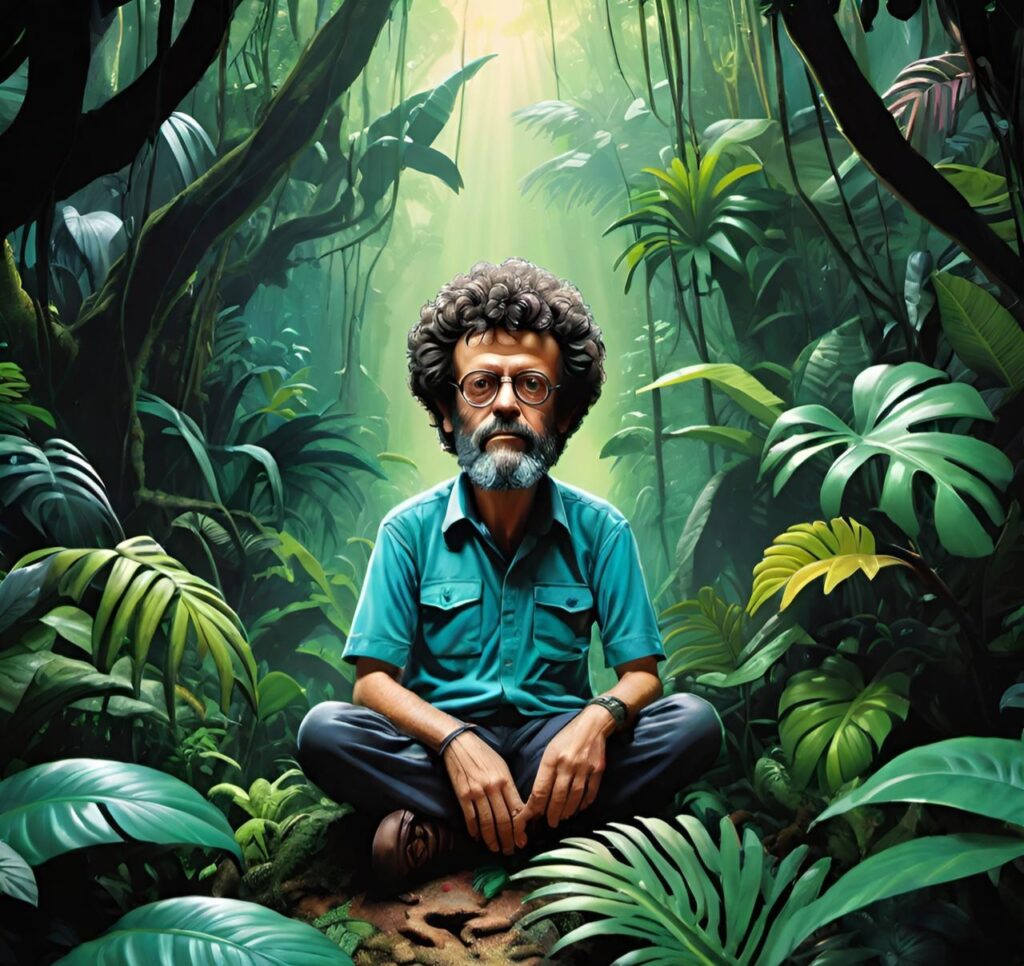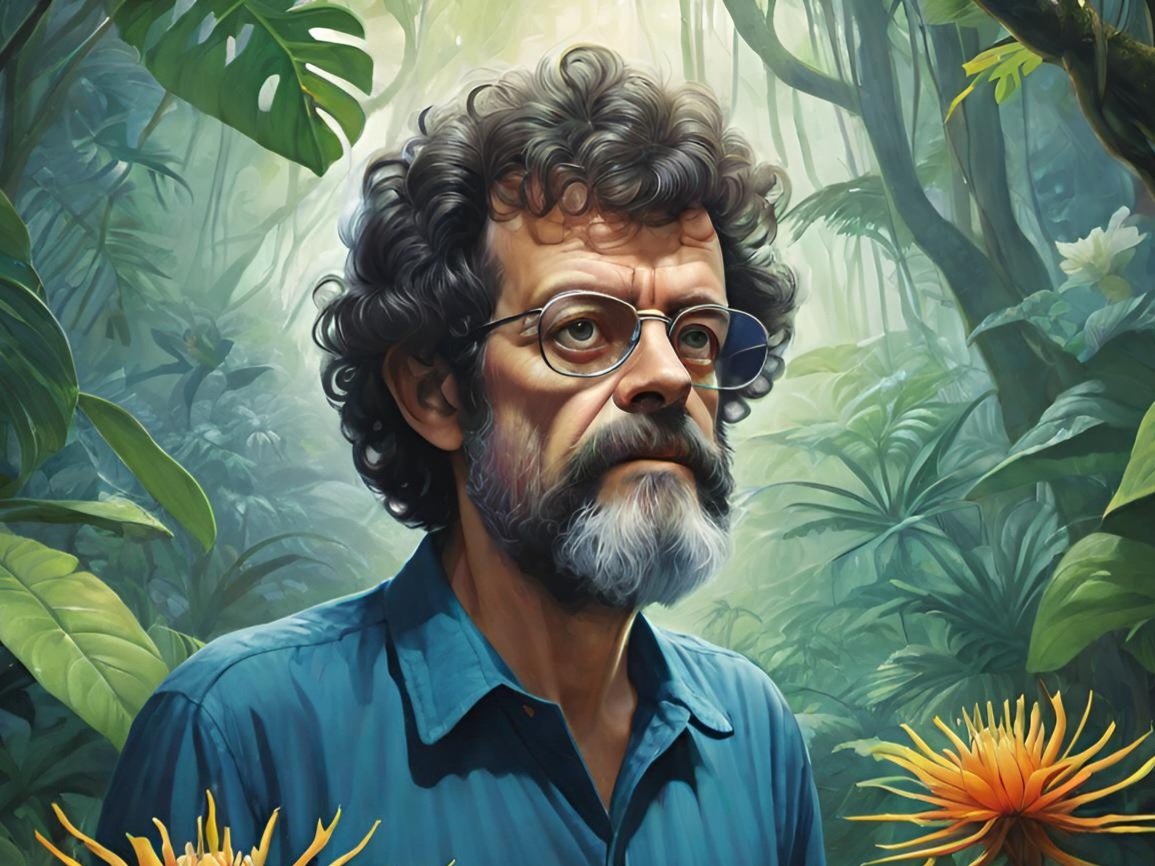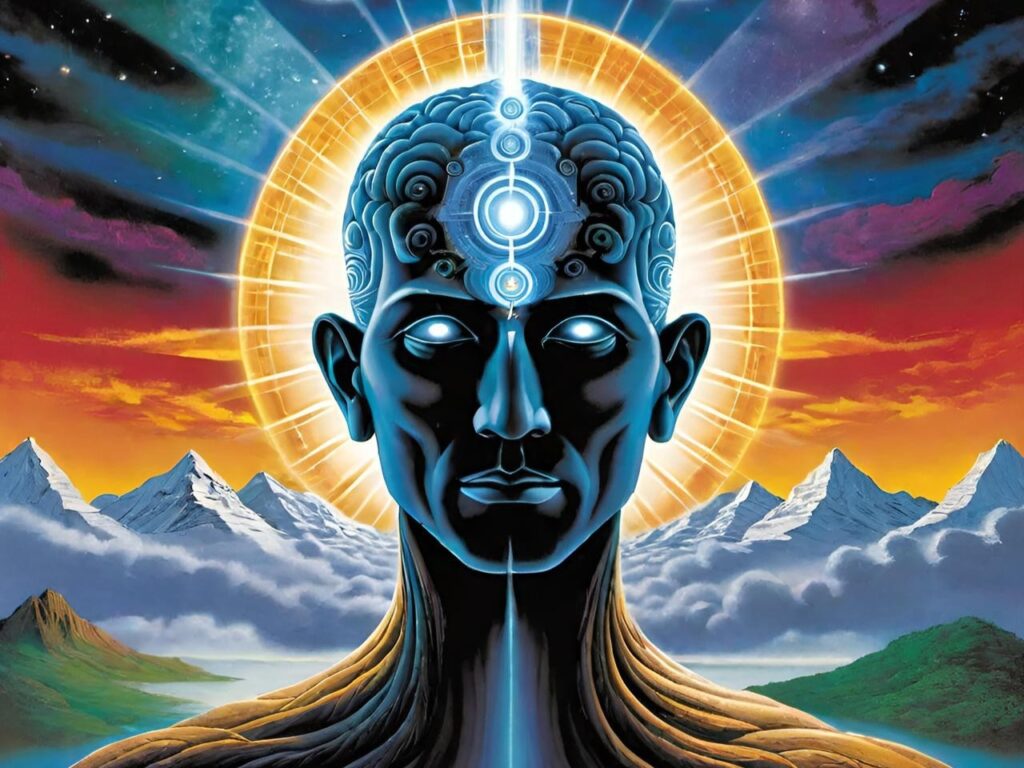When we think of counter-culture’s unsung heroes of psychedelic exploration, the name Terence McKenna immediately comes to mind. A modern-day shaman, McKenna was not only a pioneer in the study of the ethnobotanical properties of psychoactive plants but also a philosopher, speaker, and writer, whose eloquent discourse on consciousness, time, and reality captured the imagination of many. His work, deeply poetic and profoundly speculative, continues to influence a wide array of disciplines, from psychonautics to philosophy, offering insights into the human mind and our collective experiences.
Born on November 16, 1946, in Paonia, Colorado, McKenna’s journey into the world of psychedelics began at a young age, culminating in his widely recognized experiment at La Chorrera in Colombia with his brother Dennis. This experiment, which involved the synthesis of DMT from native plant sources, was a pivotal moment in McKenna’s life, leading him to develop his “Novelty Theory” and the “TimeWave Zero” hypothesis, which speculated on the nature of time and the universe.
Popularizing Psychedelics
McKenna’s eloquence and ability to articulate the ineffable experiences of psychedelic journeys made him a beloved figure among those interested in the exploration of consciousness. His lectures, often peppered with humor, wit, and a profound sense of wonder, delved into the realms of human cognition, societal structures, and the potential of psychedelics to catalyze personal and collective growth. His voice, both literal and literary, served as a bridge, connecting esoteric ideas to a broader audience.
His seminal works, including “The Invisible Landscape” and “Food of the Gods,” offer a comprehensive overview of his theories and research. In “Food of the Gods,” McKenna postulated the “Stoned Ape” theory, suggesting that the evolution of human consciousness was significantly influenced by our ancestors’ consumption of psychedelic mushrooms. While controversial, this theory sparked considerable debate and interest in the role of psychedelics in human evolution and culture.
Psychedelic Poet
Beyond his scientific and philosophical inquiries, McKenna’s approach to life and learning was deeply poetic. He saw beauty in the complexity of existence and the myriad experiences that psychedelics could unveil. His ability to convey his thoughts through rich, imaginative language has left a lasting legacy. McKenna’s work encourages us to question the nature of reality, the constructs of society, and our own perceptions, urging a break from conventional thinking to explore the vast, uncharted territories of the mind.
Terence McKenna’s death on April 3, 2000, marked the end of his earthly journey but not his influence. Today, his ideas continue to resonate, finding new audiences among those seeking to understand the mysteries of consciousness and the cosmos. As the interest in psychedelics and their therapeutic potential grows, McKenna’s work remains a beacon, guiding explorers through the inner landscapes of the human psyche with the same adventurous spirit and poetic insight that defined his life.
Conclusion
In the end, Terence McKenna was more than just a psychonaut; he was a poet of the psyche, whose visions and words continue to inspire those who journey into the depths of consciousness. His legacy is a testament to the power of ideas and the enduring allure of the unknown, reminding us that beyond the boundaries of conventional thought lie infinite possibilities waiting to be discovered.





